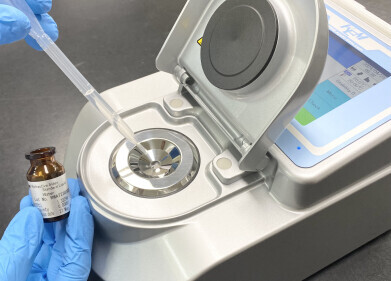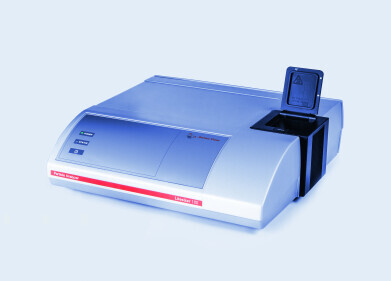Laboratory Products
Collaboration on High-Throughput Cell-Line Characterisation Services for Regenerative Medicine Announced
Feb 20 2014
Agilent Technologies Inc have announced a collaboration with Cell Line Genetics, Inc, a leading provider of cell-line characterisation and quality assurance services. CLG will develop high-throughput, genomic characterisation workflows to confirm and monitor the integrity of cell lines for translational and regenerative medicine research. The workflows will be based upon Agilent’s custom, targeted CGH+SNP microarrays and SureFISH technology.
“Cell Line Genetics customers in the regenerative medicine research market include leading research institutions, biotechnology and pharmaceutical companies,” said Victor Fung, Agilent’s Senior Director of Global Marketing for the Genomics Solutions Division. “These diverse customers will benefit from services better tailored to meet their needs. In addition, Cell Line Genetics can better control operating costs because targeted array CGH designs can focus probe density where it matters most, enabling much faster data interpretation than SNP microarrays. Speed of analysis is particularly important in this high-throughput environment.
CLG selected Agilent’s genome-wide CGH+SNP microarrays for their capability, in a predictable high-throughput environment, to detect amplifications, deletions and cell line clonality with high sensitivity. CLG will use FISH assays to confirm aberrations identified down to the single-cell level. This approach provides a robust, best-in-class means of characterising genome integrity and purity.
For cancer cell line characterisation, CLG will offer array CGH (aCGH) services as it is able to simultaneously detect a large number of anomalies more accurately, with higher sensitivity, and with better coverage than traditional cytogenetics. In addition, when using aCGH, CLG can offer a faster turnaround time to customers.
After testing more than 15,000 stem cell lines, CLG found that 20% showed aneuploidy, and 60 to 70% of those were mosaic. Most significantly, the cells harbouring genomic anomalies can have a proliferative advantage and overtake the culture, compromising the validity of study data and resulting in the loss of samples, time and funds.
Digital Edition
Lab Asia 31.2 April 2024
April 2024
In This Edition Chromatography Articles - Approaches to troubleshooting an SPE method for the analysis of oligonucleotides (pt i) - High-precision liquid flow processes demand full fluidic c...
View all digital editions
Events
Apr 28 2024 Montreal, Quebec, Canada
May 05 2024 Seville, Spain
InformEx Zone at CPhl North America
May 07 2024 Pennsylvania, PA, USA
May 14 2024 Oklahoma City, OK, USA
May 15 2024 Birmingham, UK


















